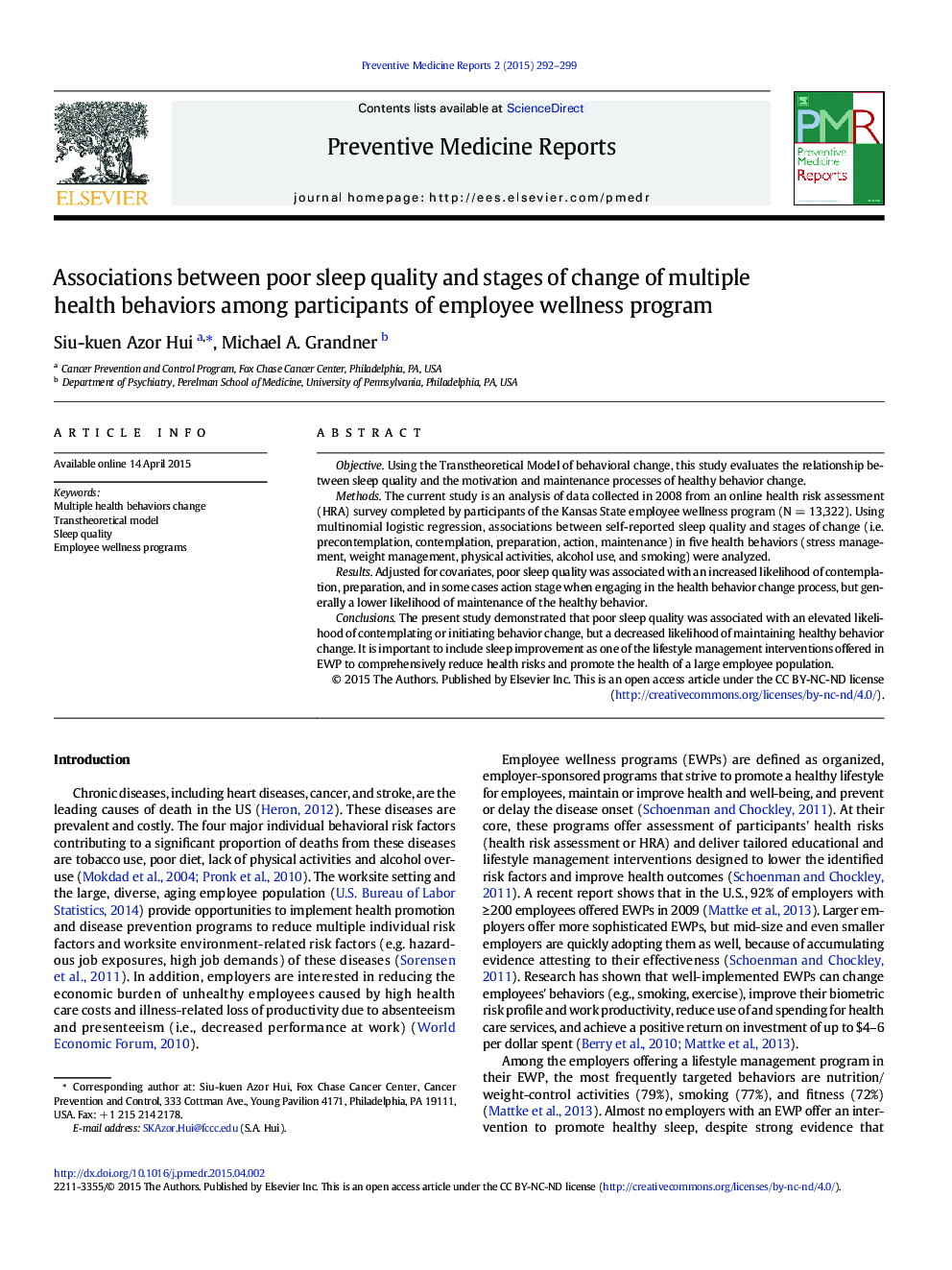| Article ID | Journal | Published Year | Pages | File Type |
|---|---|---|---|---|
| 4202433 | Preventive Medicine Reports | 2015 | 8 Pages |
•We analyzed on-line HRA responses of employee wellness program participants.•We examined association between sleep quality and stages of health behavior change.•Poor sleep quality related to contemplating or initiating health behavior change.•Poor sleep quality related to lower likelihood of maintaining healthy changes made.•Sleep improvement intervention should be included in employee wellness programs.
ObjectiveUsing the Transtheoretical Model of behavioral change, this study evaluates the relationship between sleep quality and the motivation and maintenance processes of healthy behavior change.MethodsThe current study is an analysis of data collected in 2008 from an online health risk assessment (HRA) survey completed by participants of the Kansas State employee wellness program (N = 13,322). Using multinomial logistic regression, associations between self-reported sleep quality and stages of change (i.e. precontemplation, contemplation, preparation, action, maintenance) in five health behaviors (stress management, weight management, physical activities, alcohol use, and smoking) were analyzed.ResultsAdjusted for covariates, poor sleep quality was associated with an increased likelihood of contemplation, preparation, and in some cases action stage when engaging in the health behavior change process, but generally a lower likelihood of maintenance of the healthy behavior.ConclusionsThe present study demonstrated that poor sleep quality was associated with an elevated likelihood of contemplating or initiating behavior change, but a decreased likelihood of maintaining healthy behavior change. It is important to include sleep improvement as one of the lifestyle management interventions offered in EWP to comprehensively reduce health risks and promote the health of a large employee population.
